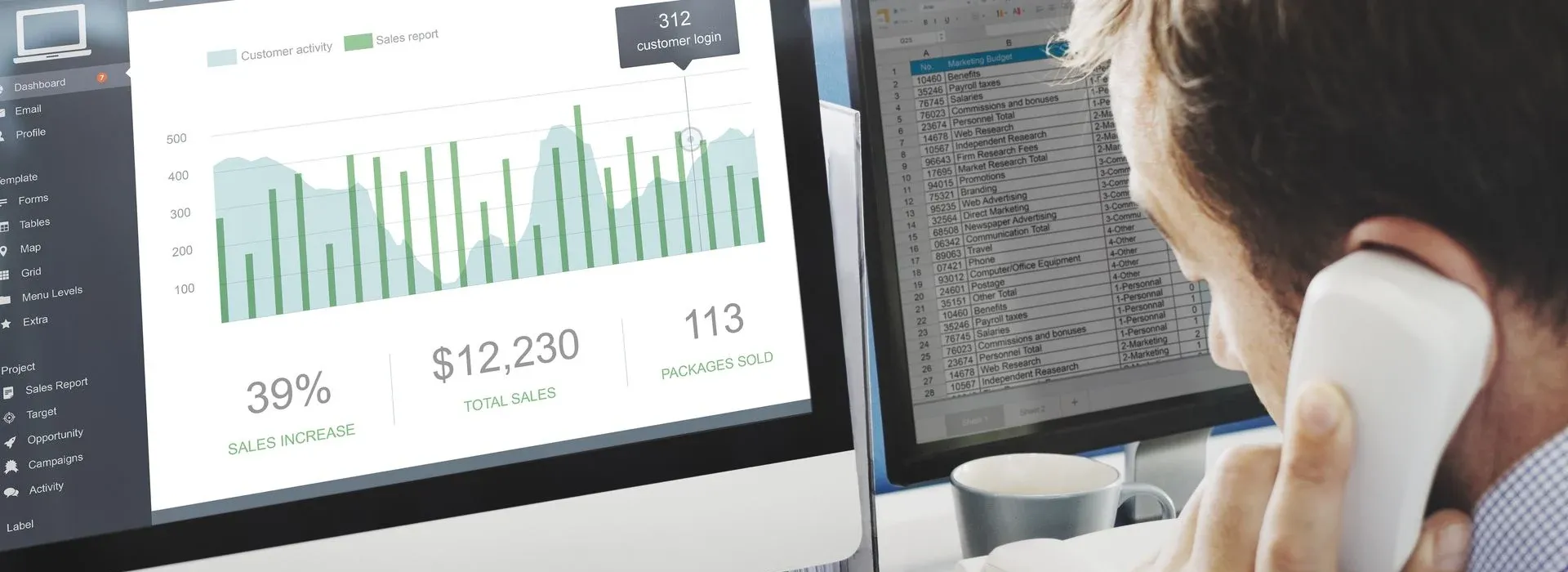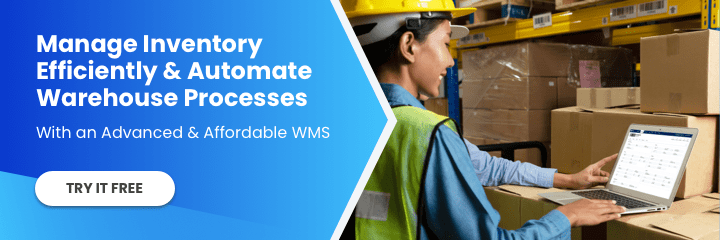Sales, operations, and marketing represent a true challenge for many small and mid-size logistics companies but also a huge opportunity. Not many businesses are dedicating the necessary time and resources to them. For many years, logistics companies have relied on personal relationships to connect with potential customers, and most of the time, these relationships are managed through emails, notes, and massive amounts of brainpower.
Click Here: Manage, Track, & Grow Your Sales Using a CRM Built for 3PLs
Soon enough, companies relying solely on this approach hit a growth barrier. Their annual growth rate begins to stall compared to organizations with strong logistics sales and marketing strategies.
Today’s opportunity lies in the ability to implement historically proven approaches alongside more modern strategies and interconnect marketing and sales efforts to increase sales and revenues.
Technologies such as Marketing Automation Systems and the latest advances in Customer Relationship Management Systems can kick business growth into high gear.
Marketing Automation Systems
Marketing Automation is one of the most unexploited opportunities among supply chain and logistics companies. As of the writing of this article, not many companies in this space are leveraging digital marketing and/or marketing automation to nurture leads and convert them into customers.
What are marketing automation systems?
Marketing automation systems are software platforms that automate repetitive marketing tasks such as email follow-ups, social media engagement, and website interactions.
It also allows companies to centralize many of their online marketing channels (social, SEO, emails, etc.) and collect statistical performance data to understand what is working, what is not, and what needs to be adjusted.
Long story short, marketing automation is a platform that will help improve and track marketing efforts and provide increased return on investment (ROI).
How can I benefit from marketing automation?
80% of sales take at least five follow-ups, but 44% of sales professionals give up after the first follow-up. This is where marketing automation can make a huge difference.
Instead of remembering to follow up, sales reps need only enroll the contact in a nurturing sequence, which triggers follow-up emails according to a defined schedule.
Another useful feature of marketing automation is lead scoring. Lead scoring tracks different interactions between lead, prospects, and/or customers with your marketing and sales efforts. This allows you to understand whether or not the contact is ready to buy before reaching out to them.
For example, if a customer visits a specified product/service page on your company website, the system will assign a value of 10, while a visit to the careers page will assign a value of -2. A total lead score of 8. Leads with high score values will signal that a contact is considering or interested in buying.
Another great benefit of marketing automation is that it allows you to automate processes involved in after-sale service.
What are some of the best-known marketing automation systems?
There has been an explosion of marketing automation systems, but when selecting one for your business, it’s important to consider its functionalities, the ability to integrate with your other systems, reliability, and costs. Do not jump into any system without properly investigating these features.
Among the best-known marketing automation systems are ActiveCampaign, SharpSpring, Marketing360, Infusionsoft, HubSpot, and Marketo.
Customer Relationship Management
Relationships are king in the small & mid-size logistics and supply chain space, but many businesses are still not managing these relationships properly.
Many companies manage customer relationships using emails, notes, and brainpower. The problem with this is that as the company grows, it becomes unsustainable, leading to a lack of personal touch that once was the strength of the business. In essence, it’s a completely counterintuitive way of managing relationships.
CRM systems allow companies to track every customer interaction and help them maintain that personal touch regardless of their business size. They also help companies define their sales process, track sales opportunities, and understand their lead-to-customer conversion rates—a key indicator for forecasting sales.
What are customer relationship management systems?
CRMs are systems that allow companies to manage their interactions with leads, prospects, and/or customers. They also provide a centralized platform to keep track of the sales process and opportunities and track sales performance metrics.
How can a CRM system help?
Some of the most important benefits of using a CRM come from personalizing customer relations and tracking customer interactions and sales opportunities. When customer interactions are tracked in a central system, anyone within the company can help the customer at any given time without losing track of the customer’s specific needs and desires.
Another advantage of using a CRM system is the ability to define and enforce a sales process, which increases sales predictability. With a well-implemented system, companies can track each stage and understand the conversion rate at each stage. Understanding the patterns and behaviors that lead to successful sales is the cornerstone of effective logistics sales operations.

What are some of the best-known CRM systems?
This technology has exploded in terms of vendors and features and continues to evolve rapidly. When selecting a CRM system, consider the recommendations for selecting a Marketing Automation System (features, integration capabilities, costs, and reliability). Remember, plan carefully and select wisely. Don’t jump right away into a system without proper analysis.
Among the best-known CRM systems are Salesforce, Microsoft Dynamics, SugarCRM, and Hubspot. These are some of the best solutions, but a Google search will provide more vendor options. Just remember, choose wisely! Once in a system, moving somewhere else is hard and painful.
With this article, we conclude our logistics sales series, in which we set out to provide insight into common logistics sales problems that many small—and mid-size logistics and supply chain organizations are facing. We also provided strategies to overcome these challenges and offered tools and solutions to overcome them.
Challenges are unexploited opportunities that the majority have not been able to conquer. We hope these articles have provided you with ideas, strategies, and tools to conquer these opportunities and kick off sales and revenue growth in high gear.
If you are facing any business challenge you want us to investigate, let us know in the comments section below or message us on X or Facebook.













